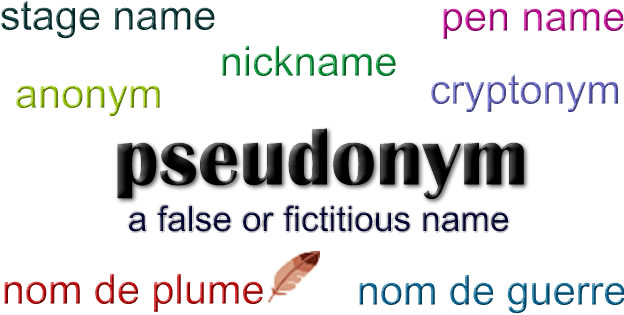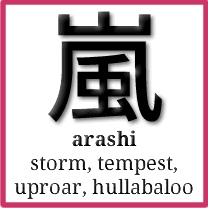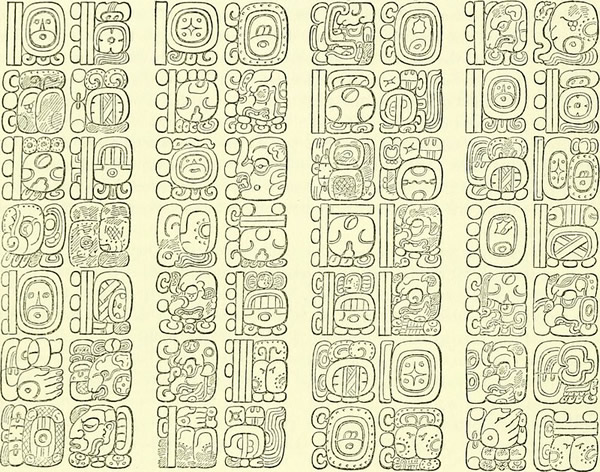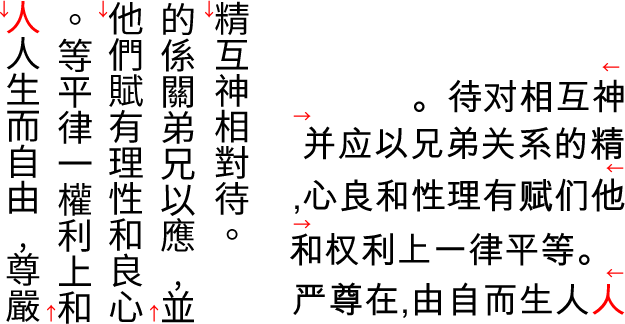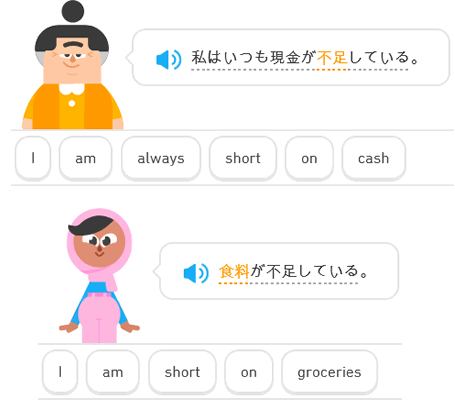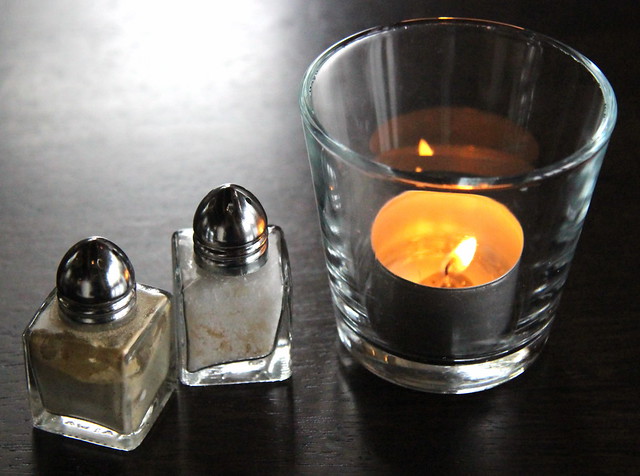The words discrete and discreet are both pronounced in the same way – [dɪsˈkɹiːt] – but have different meanings, or in other words, are homophones. Until yesterday, I didn’t realise that they were discrete words.
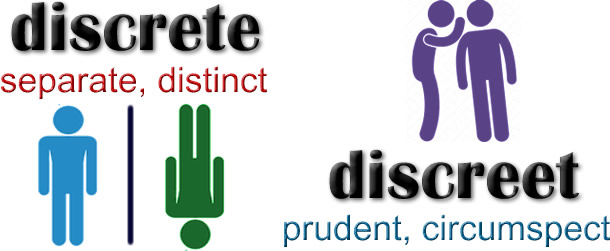
discrete means
1. apart or detached from others; separate; distinct
2. consisting of or characterized by distinct or individual parts; discontinuous. [source]
It also has specific meanings in mathematics that I won’t go into here.
discreet means
1. judicious in one’s conduct or speech, especially with regard to respecting privacy or maintaining silence about something of a delicate nature; prudent; circumspect.
2. showing prudence and circumspection; decorous
3. modestly unobtrusive; unostentatious [source]
discrete comes from the Old French discret (different), from the Latin discrētus (separate, differentiated), from discernō (I separate, set apart, divide, part), from dis- (asunder, in pieces, apart, in two) and cernō (I distinguish, divide, separate), from the Proto-Italic *krinō, from the Proto-Indo-European *krey- (to sieve) [source].
discreet comes from the same source, via the Middle English word discrete, which meant wise, morally discerning, prudent, polite, and also separate or distinct [source]. The two words separated during the Middle English period and acquired discrete meanings [source].
The word discern (to detect with the senses, perceive, distinguish) comes from the same roots [source].
Indiscrete and indiscreet are also discrete words. The former means not divided into discrete parts, while the latter means lacking prudence, revealing secrets, or tactless [source].
They both come from the Latin indiscretus (unseparated, undivided, indistinguisable), from in- (un-, non-, not) and discrētus (see above) [source].
So let’s not be indiscreet about discreetly keeping these words discrete.
